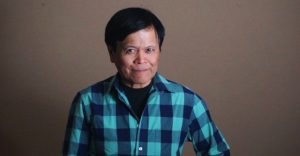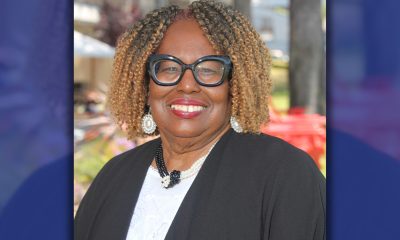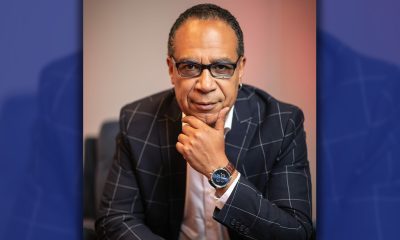Black History
Reparations Task Force: Freedmen’s Bureau Essential for Compensating Slave Descendants
The members of the California Task Force to Study and Develop Reparations Proposals for African Americans are preparing the pretext for recommending a modern-day Freedmen’s Bureau that will be critical for compensating descendants of enslaved Blacks for the injustices of slavery and Jim Crow discrimination they suffered.
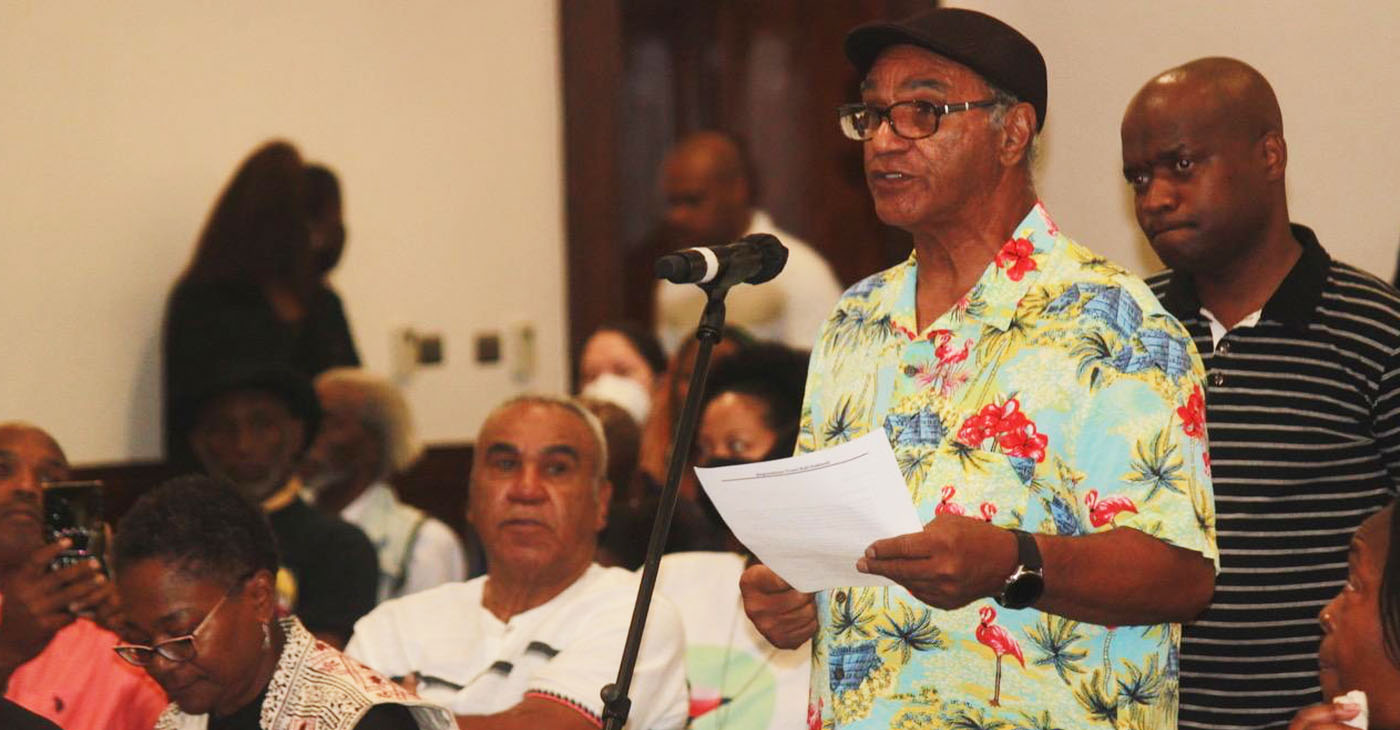
By Antonio Ray Harvey
California Black Media
The members of the California Task Force to Study and Develop Reparations Proposals for African Americans are preparing the pretext for recommending a modern-day Freedmen’s Bureau that will be critical for compensating descendants of enslaved Blacks for the injustices of slavery and Jim Crow discrimination they suffered.
Task Force Chairperson Kamilah V. Moore explained during the group’s two-day meeting at San Diego State University (SDSU) that the proposed California American Freedmen Affairs Agency (CAFAA) would identify past harms and prevent future occurrences.
Moore said that the agency would be “a main office or headquarters,” with “specialized offices and branches” dedicated to addressing specific atrocities that have “snowballed over generations.”
“The purpose of this new agency would be to identify how past state-sanctioned atrocities have perpetuated and created new iterations of these badges and incidences of chattel slavery,” Moore said.
“And how (the agency can) eradicate and prevent future … incidences from forming and prospering against the American freedman or descendant community,” she added.
The CAFAA would facilitate claims for restitution and would set up a branch to process claims with the state and assist claimants in proving eligibility through a “genealogy” department.
In addition, the CAFAA would implement the recommendations made by a reparations tribunal to settle claims for past harms and set up an office of immediate relief to expedite claims.
Task force member and civil rights lawyer Lisa Holder said the proposed agency bears a resemblance to the federal agency set up on March 3, 1865, two months before the official end of the Civil War.
The Freedmen’s Bureau, as it was named under a series of post bellum legislations, was originally designed to settle the formerly enslaved on land confiscated or abandoned during the war.
The Freedmen’s Bureau, officially known as the Bureau of Refugees, Freedmen and Abandoned Lands, assisted formerly enslaved people in acquiring relief, housing, employment, education, medical aid, and equality under the U.S. Constitution.
Holder said that the “original Freedmen’s Bureau” was “interrupted and disrupted” when it could have been a “powerful” institution 100 years later if it “had been allowed to survive and thrive,” she said. According to the Freedmen’s Bureau National Archives at www.archives.gov, the bureau ceased operations in 1872 due to the lack of funding and “deeply held racist attitudes.”
Holder added that the CAFAA should be the “guiding light” behind reparations efforts in the state of California.
“One of the things I like about this notion of a Freedmen’s Bureau is that it’s in keeping with this concept that reparations and damages for human rights abuses have to create systems that end the harm that causes the harm,” Holder said. “It is also supposed to create institutions that make the community whole in a sense that they get you up to a place where you were before the harm happened.”
Elmer Fonza of Las Vegas and his elder brother Medford Fonza, who lives in the Los Angeles area, have attended task force meetings and activities around the state. Their great-great-great- grandfather Nelson Bell was brought to California as an enslaved person around 1850 to mine for gold. He was later freed.
Bell purchased land in Coloma, 48 miles east of Sacramento, but the family lost it all after he died in the 1870s, the brothers told the task force at the September meeting in Los Angeles. Elmer Fonza believes that the property was confiscated through unscrupulous means.
The Fonza family, who visited and toured Gold Country last summer for the first time in their lives, wants to know how they can benefit from an agency such as CAFAA.
“Now, as we gather more evidence, we want to file a claim through reparations to see if we lost anything or could gain anything,” Fonza said. “We want to know if such an agency (CAFAA) could help us facilitate the process. Right now, we don’t know how that would be done.”
How the CAFAA can be used to determine reparations eligibility for Black Californians has been a topic of public discussion by Black grassroot organizations started before the task force was formed in May 2021. Now it can be addressed. Thanks to new laws that can help reparations eligibility, supporters say.
For the first time in California and American history, a specific category of data collection will be required for African Americans who are descendants of persons enslaved in the United States and living in California, starting with the state’s 2.5 million employees.
California is the first state to require its agencies to present a separate demographic category for descendants of enslaved people when collecting state employee data. Gov. Gavin Newsom’s 2022-2023 budget trailer bill — Senate Bill (SB)189 — includes language directing state agencies to disaggregate or use separate data collection categories for different Black or African American subgroups.
The State Controller’s Office administered by Malia Cohen and the Department of Human Resources can start collecting this information as soon as Jan. 1, 2024.
The Task Force affirmed lineage-based eligibility for California Reparations in March 2022. The 5-4 majority decision by the task force determined that descendants of enslaved people or free Black people in the United States as of the 19th century are the only group of people eligible for any future cash payments.
“There was great care and intentionality around the creation of this proposal, our proposal in the Interim Report that we released almost a year ago,” Moore said of CAAFA. “It just flushed out more to make all the proposed agencies fully reflect the totality of what we discussed in our 500-page report.”
The reparations task force’s next meetings are on March 3 and March 4. Times and location have yet to be announced
Activism
Oakland NAACP President Stands on the Frontlines for Equity
With education as a cornerstone, Adams emphasized the importance of youth having access to quality kindergarten through 12th-grade education along with college or vocational programming beyond high school. “I feel that it’s so important for our children to get a good education in K-12th grade, along with the colleges of their choice, especially with the HBCU’s (Historically Black Colleges and Universities).”
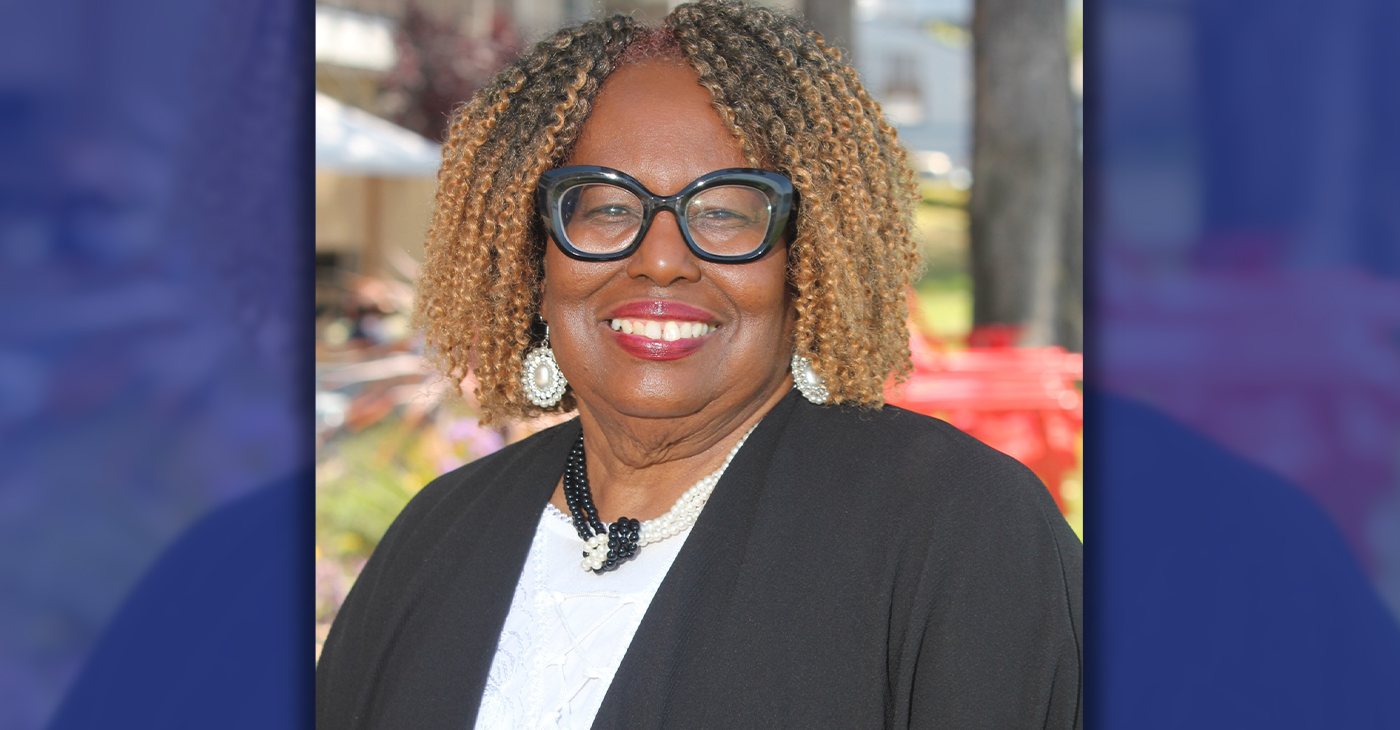
By Carla Thomas
For Cynthia Adams, president of the Oakland chapter of the NAACP, fighting for the rights of Black people comes naturally. With southern roots in Arkansas, Adams experienced firsthand the injustice and unfairness of racism.
“Growing up in the Jim Crow South, I experienced the unfair treatment of people of color and how faith can inspire communities to bring about positive and long-lasting change,” said Adams. Adams says a combination of her family and faith has kept her strong in the face of adversity and inspired her life’s work of advocacy.
Adams chose education as a career path — and a means to achieve equity and overcome racism. She earned her bachelor’s degree at the University of Arkansas at Pine Bluff and later received an advanced degree from California State East Bay.
Adams’ experience as an Oakland Unified School District (OUSD) recorder, a counselor, a researcher, and a college recruiter has allowed her to be laser-focused on youth. She also served as the chairperson for the Oakland NAACP youth.
“The mission of the National Association for the Advancement of Colored People is to ensure the political, educational, social, and economic equality of rights of all persons and to eliminate race-based discrimination. We want to ensure our citizens have equal rights and opportunities without discrimination based on race.”
As a partner with the State of California’s Stop the Hate campaign, Adams says the initiative is a step in the right direction. “It’s great that our governor and state created the Stop the Hate campaign and provides resources for victims of racism and other hate crimes,” said Adams. “The racism toward Black people has increased and our children are being targeted,” she continued.
“We, at the Oakland branch, created a declaration on racism that will amplify the needs of our community to combat racism,” continued Adams. “That declaration was adopted nationally.”
Bridging communities and collaborating is also a strategy for moving society toward justice, according to Adams.
“Through the NAACP, we build connections between communities and advocate for the rights of historically marginalized and oppressed individuals,” said Adams. “Collective action is the only way to advance civil rights and promote social equity.”
With education as a cornerstone, Adams emphasized the importance of youth having access to quality kindergarten through 12th-grade education along with college or vocational programming beyond high school. “I feel that it’s so important for our children to get a good education in K-12th grade, along with the colleges of their choice, especially with the HBCU’s (Historically Black Colleges and Universities).”
By taking stands on supporting former Oakland Police Chief LeRonne Armstrong to supporting the recall of a mayor faced with a scandal that brought negative national press to the city of Oakland, Adams has always demanded more for her people, and better for Oakland, the city she calls home.
She expressed pride in the national organization’s announcement of a $200 million fund designed to empower Black funders nationwide. “We all know the health of a community begins with economics,” said Adams.
Adams says that strengthening Black businesses automatically sustains a community. “We’ve also got to educate our community on opportunities and teach our children critical thinking so that they can provide the next generation of solutions for society,” said Adams.
Activism
U.S. Rep. Barbara Lee Remembers Jimmy Carter’s Sunday School Lessons
Barbara Lee said she still treasures her CD Sunday school lessons that she participated in as a visitor to Jimmy Carter’s Maranatha Baptist Church in Plains, Georgia. She told The Post that she attended gospel concerts at the Carter White House as the staff aide for the late Congressman Ron Dellums.
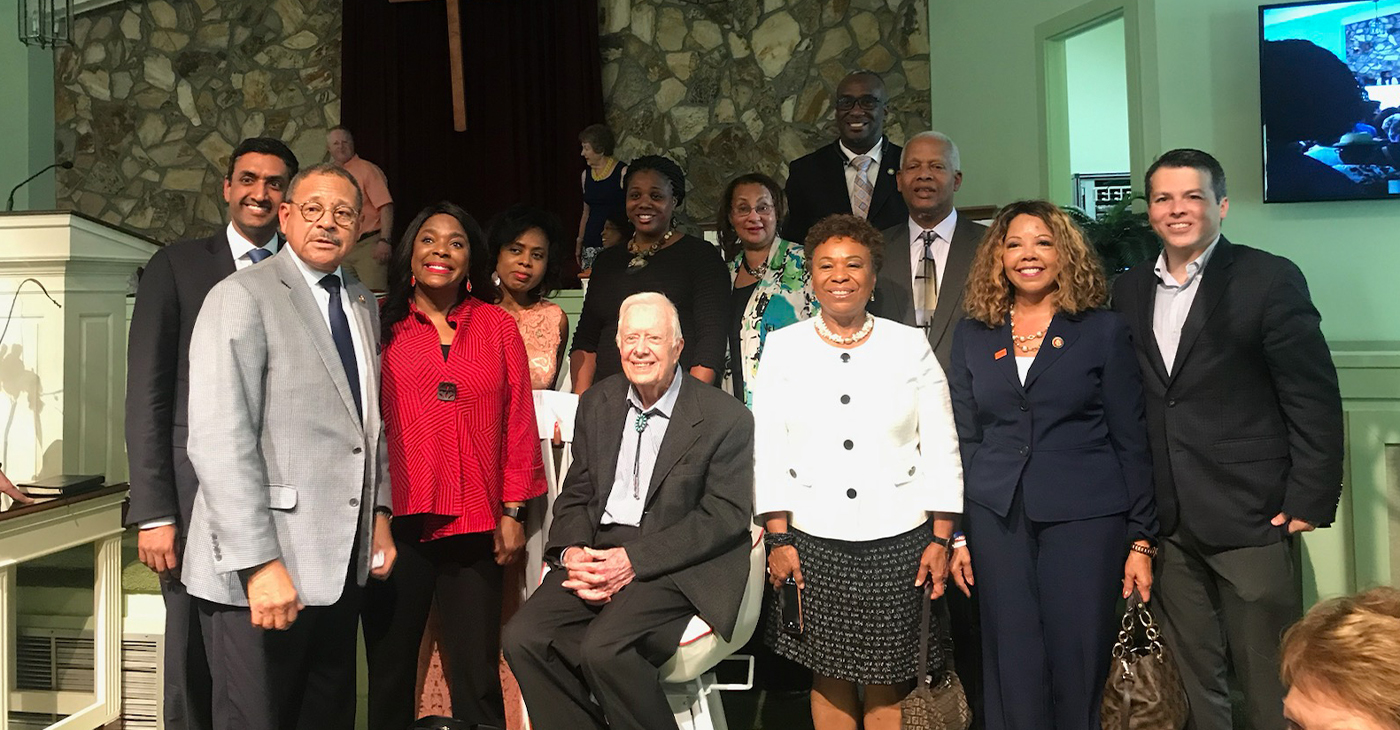
By Paul Cobb
“I’m deeply saddened to hear of the passing of President Jimmy Carter,” said Congresswoman Barbara Lee. “President Carter displayed a lifelong commitment to global peace, justice, and human rights. He inspired me and countless others.”
“I send my condolences to his family, his loved ones, and all who loved him. May he now Rest in Peace with his wife, Rosalynn,”. Lee continued.
Barbara Lee said she still treasures her CD Sunday school lessons that she participated in as a visitor to Jimmy Carter’s Maranatha Baptist Church in Plains, Georgia. She told The Post that she attended gospel concerts at the Carter White House as the staff aide for the late Congressman Ron Dellums.
“I also invited congressional staff to visit his Sunday school teachings. He taught us lessons on how to apply our faith to our policy work in government and in our respective communities. He practiced what he preached and represented a change in social and racial advancements.”
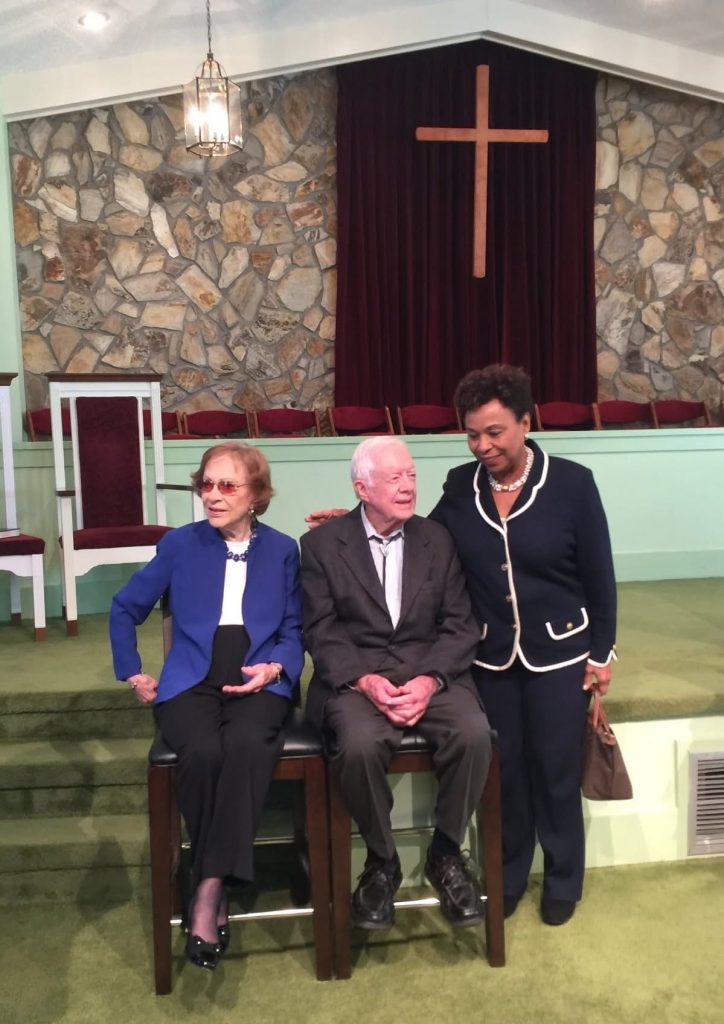
Barbara Lee with President Carter and First Lady Rosalyn. Lee has treasured the Carters and notes of his Sunday School Bible lessons through the years. Photos courtesy of Rep. Lee’s office.
Arts and Culture
Book Review: Building the Worlds That Kill Us: Disease, Death, and Inequality in American History
Nearly five years ago, while interviewing residents along the Mississippi River in Louisiana for a book they were writing, authors Rosner and Markowitz learned that they’d caused a little brouhaha. Large corporations in the area, ones that the residents of “a small, largely African American community” had battled over air and soil contamination and illness, didn’t want any more “’agitators’” poking around. They’d asked a state trooper to see if the authors were going to cause trouble.
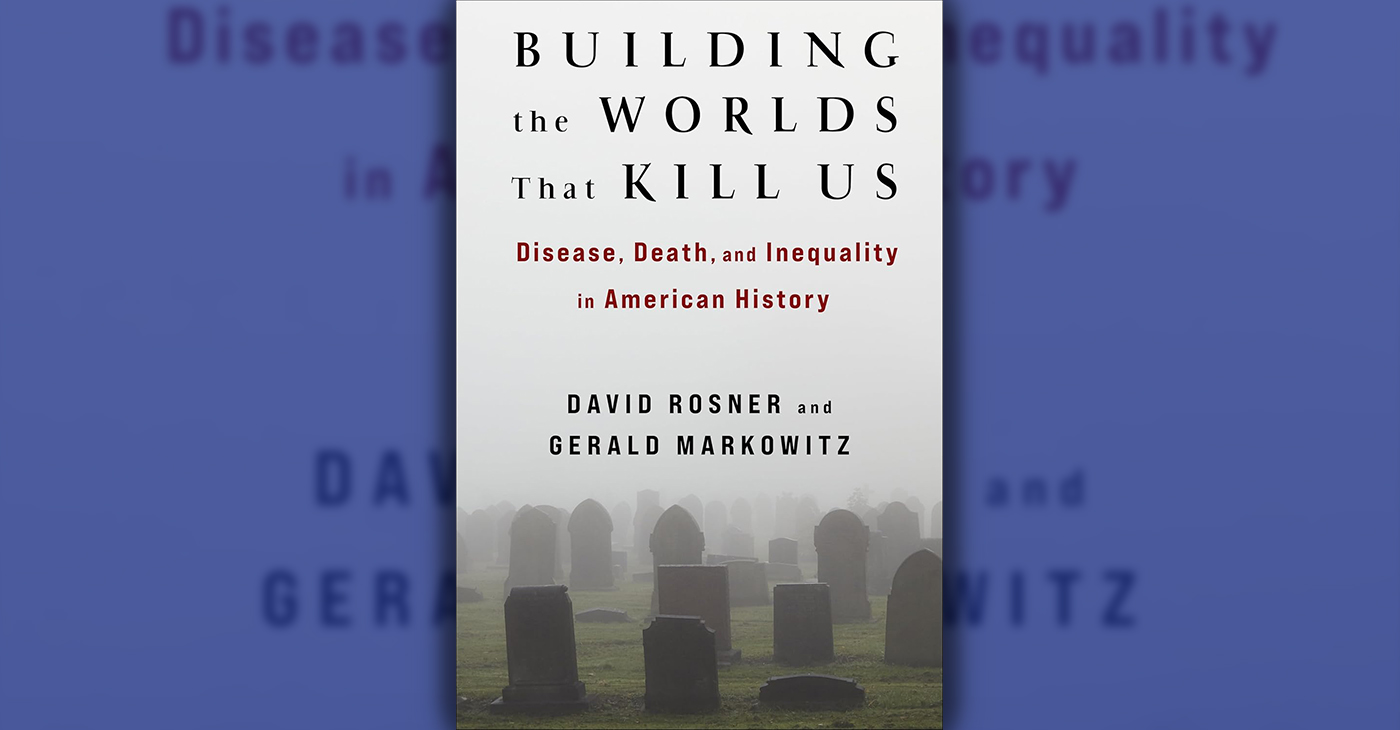
By Terri Schlichenmeyer
Author: David Rosner and Gerald Markowitz, c.2024, Columbia University Press, $28.00
Get lots of rest.
That’s always good advice when you’re ailing. Don’t overdo. Don’t try to be Superman or Supermom, just rest and follow your doctor’s orders.
And if, as in the new book, “Building the Worlds That Kill Us” by David Rosner and Gerald Markowitz, the color of your skin and your social strata are a certain way, you’ll feel better soon.
Nearly five years ago, while interviewing residents along the Mississippi River in Louisiana for a book they were writing, authors Rosner and Markowitz learned that they’d caused a little brouhaha. Large corporations in the area, ones that the residents of “a small, largely African American community” had battled over air and soil contamination and illness, didn’t want any more “’agitators’” poking around. They’d asked a state trooper to see if the authors were going to cause trouble.
For Rosner and Markowitz, this underscored “what every thoughtful person at least suspects”: that age, geography, immigrant status, “income, wealth, race, gender, sexuality, and social position” largely impacts the quality and availability of medical care.
It’s been this way since Europeans first arrived on North American shores.
Native Americans “had their share of illness and disease” even before the Europeans arrived and brought diseases that decimated established populations. There was little-to-no medicine offered to slaves on the Middle Passage because a ship owner’s “financial calculus… included the price of disease and death.” According to the authors, many enslavers weren’t even “convinced” that the cost of feeding their slaves was worth the work received.
Factory workers in the late 1800s and early 1900s worked long weeks and long days under sometimes dangerous conditions, and health care was meager; Depression-era workers didn’t fare much better. Black Americans were used for medical experimentation. And just three years ago, the American Lung Association reported that “’people of color’ disproportionately” lived in areas where the air quality was particularly dangerous.
So, what does all this mean? Authors David Rosner and Gerald Markowitz don’t seem to be too optimistic, for one thing, but in “Building the Worlds That Kill Us,” they do leave readers with a thought-provoker: “we as a nation … created this dark moment and we have the ability to change it.” Finding the “how” in this book, however, will take serious between-the-lines reading.
If that sounds ominous, it is. Most of this book is, in fact, quite dismaying, despite that there are glimpses of pushback here and there, in the form of protests and strikes throughout many decades. You may notice, if this is a subject you’re passionate about, that the histories may be familiar but deeper than you might’ve learned in high school. You’ll also notice the relevance to today’s healthcare issues and questions, and that’s likewise disturbing.
This is by no means a happy-happy vacation book, but it is essential reading if you care about national health issues, worker safety, public attitudes, and government involvement in medical care inequality. You may know some of what’s inside “Building the Worlds That Kill Us,” but now you can learn the rest.
-

 Activism2 weeks ago
Activism2 weeks agoBooks for Ghana
-

 Activism4 weeks ago
Activism4 weeks agoPost News Group to Host Second Town Hall on Racism, Hate Crimes
-

 Arts and Culture3 weeks ago
Arts and Culture3 weeks agoPromise Marks Performs Songs of Etta James in One-Woman Show, “A Sunday Kind of Love” at the Black Repertory Theater in Berkeley
-

 Activism4 weeks ago
Activism4 weeks agoButler, Lee Celebrate Passage of Bill to Honor Congresswoman Shirley Chisholm with Congressional Gold Medal
-

 Activism3 weeks ago
Activism3 weeks ago‘Donald Trump Is Not a God:’ Rep. Bennie Thompson Blasts Trump’s Call to Jail Him
-

 Bay Area2 weeks ago
Bay Area2 weeks agoGlydways Breaking Ground on 14-Acre Demonstration Facility at Hilltop Mall
-

 Activism4 weeks ago
Activism4 weeks agoDelta Sigma Theta Alumnae Chapters Host World AIDS Day Event
-

 Business4 weeks ago
Business4 weeks agoLandlords Are Using AI to Raise Rents — And California Cities Are Leading the Pushback

